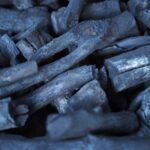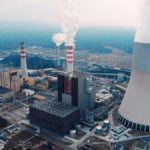UK firm is official biochar partner at COP28
Climate-tech company A Healthier Earth has been announced as the official biochar partner at the UN Climate Change Conference (COP28). The firm will be...
EU closer to enforcing rules on methane emissions in the energy sector
The EU looks ready to enforce new regulations aimed at curbing methane emissions in the energy sector, for the first time.
On 15 November, the...
Diverse forests hold huge carbon potential, as long as we cut emissions
New study estimates that natural forest recovery could capture approximately 226 Gigatonnes (Gt) of carbon, but only if we also reduce greenhouse gas emissions....
Current incremental levels of change insufficient to meet global net zero ambitions by 2050,...
Governments and industry must deliver transformative change on net zero but are currently hamstrung by significant barriers, including global public debt, domestic tensions, increased...
Job losses feared over move to lower emissions furnaces at British Steel
British Steel has announced plans to further decarbonize its operations via a £1.25-billion proposal to transition towards electric arc furnace steelmaking, and away from...
Comment: how accessible carbon credits can drive progress towards Net Zero
By Mike Edwards, Chairman of Ora Technology PLC (Ora), a company focused on carbon trading, and attempting to facilitate the process of buying, selling,...
Greenpeace: Car makers showing slow progress on decarbonizing supply chains
While electric vehicle sales continue to rise worldwide, automotive supply chains are lagging behind the required pace of decarbonisation, according to a new report...
Defra funds project to sequester carbon in peatlands of the Falklands
The greenhouse gas (GHG) emissions of the Falkland Islands’ extensive peatland habitats are to be studied as part of a project that will examine...
Carbon-negative, climate-resilient home unveiled in the Bahamas
A building described as the world’s first carbon-negative ‘Home for the World’ has been showcased in Nassau, Bahamas, by Partanna Global, a developer of...
Landmark agreement provides platform for delivery of major carbon store in North Sea
The Crown Estate has awarded an Agreement for Lease for what it says could become one of the world’s largest carbon capture and storage...
Call for emissions measuring and monitoring technologies to shape groundbreaking roadmap
The Net Zero Technology Centre (NZTC) and North Sea Transition Authority (NSTA) have today launched a call for emissions measuring and monitoring technologies,...
Net zero legal challenge to be heard by High Court in February
Good Law Project, Friends of the Earth and ClientEarth will bring their legal challenge of the Government’s threadbare net zero strategy to the High...
Wetland conservation “the most effective approach to climate regulation”
New research appears to find that wetland conservation has a higher potential mpact for mitigating climate change than other ocean-based solutions.
Conducted by Imperial...
Study analyzes microplastics’ effect on clouds
A new study sheds light on the quantity and type of microplastics present in clouds. It offers insight into how these airborne particles influence...
Cheltenham methane leak detected from space
In what seems to be a first, a UK methane leak has been spotted from space, and mitigated. Methane leaking from a faulty pipe...
The cloud of unknowing: Making sense of the carbon capture puzzle
The drive to scale-up carbon capture and storage (CCS) appears to be underway on both sides of the Atlantic, with the only problem being...
New startup project ‘nudges’ seafarers to reduce ship emissions
Behavioural change startup Signol launched a seemingly first-of-its kind project with Stolt Tankers on 11 September, aiming to further reduce shipping emissions by using...
Ocean-based negative-emissions technologies present many challenges
The ocean will play a key role in efforts to tackle the climate crisis, according to scientists and the Intergovernmental Panel on Climate Change...
Project aims to reduce impact of ammonia emissions from livestock
Testing has begun with a project that aims to reduce the environmental impact of ammonia emissions from livestock by using ammonia-harvesting technology, which was...
Global beverages industry could reach emissions target by 2028 if clear plan put in...
A new report from global consultancy Kearney presents "a comprehensive model to help beverage companies reduce their CO2e emissions and the industry meet its...






















